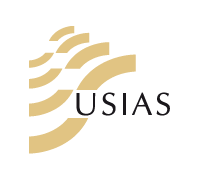Publication date: 06/02/15
ThemesNews
Strasbourg’s and Freiburg’s institutes of advanced studies ( USIAS and FRIAS) launched their second common request for proposals, in view of supporting emerging collaborative projects between researchers from both universities.
The universities of Strasbourg and Freiburg have been working together for years, especially in relation to dual degrees. These cooperative activities have brought their respective institutes of advanced studies closer together, leading them to issue their first common request for proposals in 2013.
Institutes of advanced studies aim to support innovative research in all scientific fields and to promote high-level reflection and synthesis. Rifka Weehuizen, USIAS general secretary, points out that “most European institutes of this type belong to networks, but bilateral partnership is a more efficient way to strengthen real cooperation and to further exchanges and encounters.”
At the time of the 2013’s request for proposals, a jury of international independent experts had considered 27 high quality applications based on scientific excellence and quality criteria. The four best projects had been taken on, and project holders have become Fellows of the two institutes. The selected projects are always original and lead to constitute complementary Franco-German duos.
Raising interest in the other’s work
One of these collaborative projects, Metabevo, is led by Danièle Werck- Reichhart1 from Strasbourg’s Institute of plant molecular biology2 and by Ralf Reski3, co-founder of Freiburg’s trinational Institute of plant research4. Their common research work addresses the evolution of plant phenolic metabolism. USIAS-FRIAS’ request for proposal gave Danièle Werck-Reichhart the opportunity to collaborate with Ralf Reski and his team: “We knew each other’s work but we hadn’t had a chance to work together so far. We are truly complementary in terms of skills, field of expertise and study design.” Financial support and the proximity of the two universities allowed them to hire a post-doc to work on both sites. “ We hope that this project will be a catalyst for new funding”, the Strasbourg researcher concludes.
1. CNRS research director; 2. CNRS research unit; 3. biology professor in Freiburg; 4. this institute brings together the universities of Strasbourg, Freiburg, Karlsruhe and Basel.
















